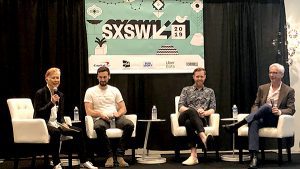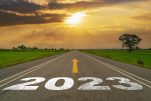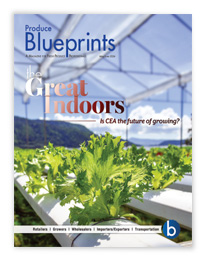AUSTIN, TX—With conference topics like dystopian future bug diets, customized nutrition and electronic baristas, a panel put together to discuss the future of eating at South by Southwest had a message many in the room didn’t expect.

“I’m skeptical that we need a very personalized food system,” said Max Elder, Research Director for Food Futures Lab, Palo Alto, CA. “There’s very broad consensus that we should all just be eating more fruits and vegetables. Americans eat too many calories, period. We just need to eat less.”
Rather than focusing on technology that customizes nutrition – think Soylent Green – it should be a simpler nudge, he said.
“We do not need any fancy AI technology to push meal plans that we spend all this money on for our bodies,” he said. “I just need to eat more fruits and vegetables and eat less. Those two things would have a massive impact on all of our health.”
When the room erupted into applause, fellow panelist Henry Gordon-Smith, Founder and Managing Director for Agritecture commented on the paradox of people knowing they should eat more fruits and vegetables, but not actually doing it.
“How do we even do it, though,” Gordon-Smith asked. “Tech is supposed to help you do it in a society where we’ve lost that connection to fruits and vegetables in many ways. Tech is supposed to incentive us and push us to do it.”
Art Markman, Professor of Psychology and Marketing at the University of Texas, said that we need to find a way to align the mental aspects eating with the physical aspects of eating better.
“Health is more than just the health of my body,” he said. “The formula for good eating is not a closely guarded secret. Technology can be useful there.”
The panel, moderated by Robyn Metcalfe, Research Fellow for Austin-based Food + City, also discussed the inconsistency of what consumers say they want versus their purchase decisions and behaviors.
Consumers say they want transparency, but it rarely results in action, Elder said. Humans claim to want to know more about our food system.
“But then when you actually walk into a grocery store in the aisle you spend about two seconds on the decision of what to buy,” he said. “We outsource a lot of this very quickly. We don’t open up our phone, access an app, scan a QR code, watch a 3-minute video about a farmer. None of us do that. We don’t actually do that.”
And, in the end, we don’t worry about it later.
Elder asked the audience, “Did any of you eat dinner last night? Did any of you worry about the safety of your food?”
When the audience was silent, Elder said: “And that’s amazing.”


